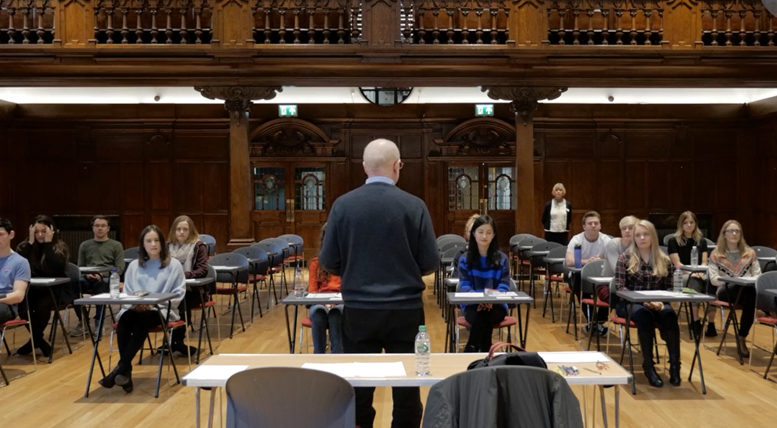For the first time in Cambridge’s history, behind-the-scenes details about the highly secretive organisation of exam invigilators have been revealed.
The selection process for each season’s set of invigilators is gruelling, with only the most qualified candidates from the most boring professions considered. Last year’s invigilation squadron included a former road line painter, two professional leafletters, and a TCS columnist.
Once selected, new recruits are schooled in the latest, state-of-the-art techniques of invigilation. As well as memorising the exam regulations, they learn how to position a clock so that it is hidden from the entire exam hall, how to actively avoid spotting a raised hand, and how to breathe at volumes of upwards of 110 decibels.
At the end of their training – by which time they are expected to be able to collect a row of exam scripts in at least ten minutes – they are equipped with a pair of tap dancing shoes, an extra-large nail file to ensure that all desks are perennially wobbly, and a tablet computer on which to watch videos of iconic exams of the past in real-time.
There is also space for creativity, however, and rumours of this year’s innovations are already circulating. One invigilator has allegedly designed a ‘Student Grabber’, which will pluck desperate-for-the-loo students from their seats to reduce the need to clamber past their peers in lecture theatres.
Though it encourages modernisation, the University takes the invigilation process seriously. While invigilators who excel are locked in the Corn Exchange store cupboard at the start of May Week in order that they can be reused the following year, those who fail to make the grade face severe consequences.
Invigilation Secretary Emily Milton, in an email sent from her Huawei mobile, explained the procedure.
“Confidentiality is very important to us. In order to prevent any security breach that could result from class lists being leaked, we immediately have our invigilators executed.
“Regrettably, this means that their life expectancy upon recruitment is usually only six weeks, but at that point they will have served their purpose.”



